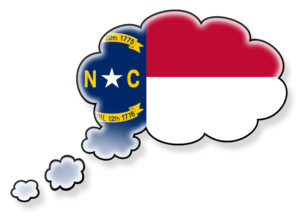This is the 2nd of a three-part series, The NC Way
Click HERE for Part 1
By Gary Gunderson
What would you hope for?
If you were a loving God or thought like one, what would your hopes be for this odd and wonderful rainbow of nearly 10 million people as they venture further into the 21st century wilderness? If you were looking for such a God, what evidence would you look for? Perhaps the living fibers of social connection to weave together faith, health, education and politics in a way that leaves out no one and includes everything relevant to health. You’d have to turn off the political volume entirely, like you might an annoying announcer, and pay attention to those who are actually on the field.
There you’d see things as unexpected, but entirely logical, as the radical witness of the Conetoe Family Life Center, led by Rev. Richard Joyner. You’d see a place that exists in the imagination of people determined to give youth something to see other than drugs and poverty. With little to work with beyond dirt and spirit, Joyner has made hope seem obvious. Determined to break the ugly cycle of “less than” relationships, he refused “helping” grants. Instead, he negotiates contracts with Nash UNC Health Care and Vidant Health to buy produce from Conetoe’s community farm. The profits flow into educational savings accounts for youth in the community.
The youth aren’t just borrowing hope from Joyner anymore. When Hurricane Matthew flooded the farm and drowned the bee hives, young people in the community swarmed in to set up twice the number of hives in time for spring. They figured out how to figure it out. Is this church work or community work? Joyner says it’s human development as God had in mind.
An agent of transformative mercy
What are the signals that invoke and inspire trust in social systems that have been bruised and calloused in the ways of textiles, furniture and tobacco?
North Carolina is distinctive in the peculiar way religion works in a patchwork of small company towns. A 1976 landmark study, Spindles and Spires: A Re-study of Religion and Social Change in Gastonia, by Don Shriver, Dean Knudsen and John Earle, looked at the community where CaroMont Health is now building its congregational network. The study detailed the complex “canopy” of values and practices that define faith in company towns. Worthy of being updated, the study highlighted how tricky it is for hospitals to distinguish the work of health as mercy and justice from company benefits, like paying for people’s electric bills in December so they can decorate their Christmas trees. The company pays the pastor, so why not expect them to pay the parish nurse, too, and maybe provide a little decorative education while they’re at it?
But religion as an agent of transformative mercy for the poor? Seriously? We are serious about just that, but it will take some unlearning to get there.
 Even in state politics, where you’d be embarrassed to expect it, you’ll find both memory and hope of figuring it out. State offices have long histories of working at state and county levels with networks of everything mentioned above. Dr. Hatch’s students hold leadership positions in offices across the state. Civil servants attend faith services just as other citizens do, so it’s not hard for them to notice the array of congregations—for example, the thousands with the NC Baptist Convention, the Methodists or the General Baptist State Convention.
Even in state politics, where you’d be embarrassed to expect it, you’ll find both memory and hope of figuring it out. State offices have long histories of working at state and county levels with networks of everything mentioned above. Dr. Hatch’s students hold leadership positions in offices across the state. Civil servants attend faith services just as other citizens do, so it’s not hard for them to notice the array of congregations—for example, the thousands with the NC Baptist Convention, the Methodists or the General Baptist State Convention.
Rick Brajer, secretary of Health and Human Services (HHS) under Republican Gov. Pat McCrory, knew he would be replaced under a new administration. Still, Brajer held a meeting after the 2016 election to ensure that the quiet, multifaceted collaborations with faith networks would make a smooth transition to the current administration. New HHS Secretary Mandy Cohen, MD, is picking up the thread in much the same spirit, the NC Way.

